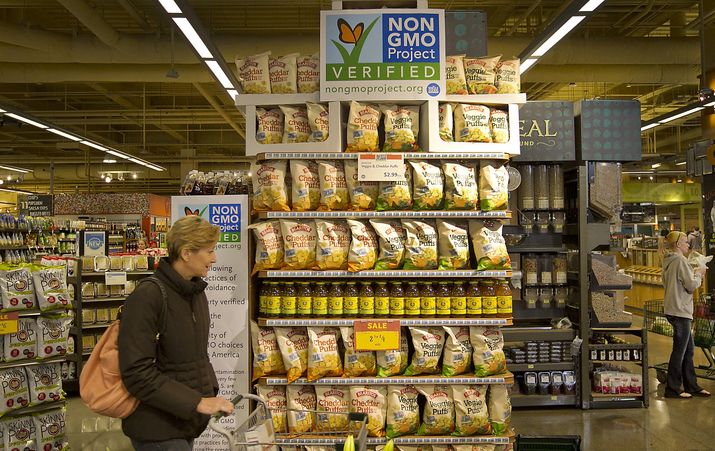-
Tips for becoming a good boxer - November 6, 2020
-
7 expert tips for making your hens night a memorable one - November 6, 2020
-
5 reasons to host your Christmas party on a cruise boat - November 6, 2020
-
What to do when you’re charged with a crime - November 6, 2020
-
Should you get one or multiple dogs? Here’s all you need to know - November 3, 2020
-
A Guide: How to Build Your Very Own Magic Mirror - February 14, 2019
-
Our Top Inspirational Baseball Stars - November 24, 2018
-
Five Tech Tools That Will Help You Turn Your Blog into a Business - November 24, 2018
-
How to Indulge on Vacation without Expanding Your Waist - November 9, 2018
-
5 Strategies for Businesses to Appeal to Today’s Increasingly Mobile-Crazed Customers - November 9, 2018
EP rejects possible GM food bans
The Commission said it was disappointed by the vote and that it stands by its proposal.
Advertisement
According to the Parliament, members are concerned that the law might prove unworkable or that it could lead to the reintroduction of border checks between pro- and anti-GMO countries.
The European Parliament’s overwhelmingly rejected a proposal that would allow individual EU member states to opt-out of importing and using foods containing biotechnology for non-scientific reasons. Greenpeace said it welcomed the vote “because the Commission’s plan would have failed to provide additional protection of European citizens and the environment from the risks posed by GMO crops”. More understanding is needed regarding trade and the position GMO crops play, they added.
La Via said the Commission should have retracted the proposal as it knew it would not be accepted. “This is an opportunity the EU Commission should not miss, as long as the floor is given to operators, scientists and economists.” . “There was no evaluation of the potential consequences or of other available options”, he said.
Officials with the American Soybean Association (ASA) also came out in favor of the decision. “Enabling each of its 28 member states to go rogue on GMO acceptance, based on societal or political concerns, is hardly a unifying strategy for success”, said Wade Cowan, president of the American Soybean Assn.
The use of GMOs, principally concerning corn, cotton, rapeseed and sugar beets, is at the heart of controversy in Europe where public opinion is strongly unfavorable.
“If approved, such a proposal would undermine the internal market and farmers’ livelihoods and set off alarm bells for any innovative industry looking to invest in Europe”, Letitia Conclaves, chairman of Europa, said in a statement. “The Commission just needs to do its job by following its own regulations and procedures”. However, their use is varied across Europe with a few countries refusing to allow GM crops to be planted, for fear of cross-fertilization with non-GM crops.
The decision would put producers at a competitive disadvantage by increasing feed and production costs in certain countries but not everywhere, group officials said.
Advertisement
The proposal, which would amend existing European Union legislation to enable member states to restrict or prohibit the use of EU-approved genetically modified food and feed on their territory, was tabled by the EU Commission April 22.





























